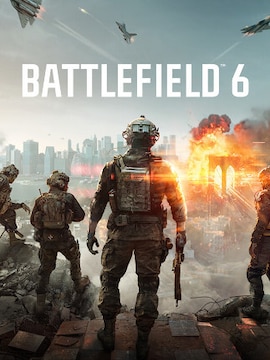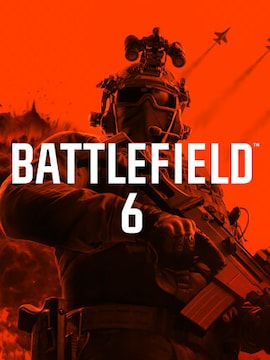Persona 5 Royal and Metaphor: ReFantazio have been awarded several GOTY and Best RPG awards in their respective release years.
Both were developed and published by ATLUS, which inevitably invites comparisons. Which is better? What are the differences and the similarities?
The basic similarities
Both games are story-heavy RPGs with turn-based, weakness exploitation-based combat. Both feature a time-management simulation and use a variation of the Social Link introduced in Persona 3 Reload. They also share anime-style graphics with many cut scenes and visual novel-style dialogues.

Length
Persona 5 Royal is considerably longer than the original Persona 5 and requires around 120 hours to beat. Metaphor: ReFantazio is yet to receive an expansion, but even so, most players clock around 90 hours of gameplay.
Setting
Persona 5 Royal is set in modern-day Tokyo. The setting features fantastic elements, namely the Metaverse, an alternative world created by the collective consciousness, where shadows and personas dwell. The characters are Japanese high schoolers who want to reform society by making evil adults atone for their sins.
Metaphor: ReFantazio has a unique high-fantasy setting created specifically for the game. Much work was invested in the world-building and Metaphor avoids tired fantasy tropes borrowed from The Lord of the Rings. While the protagonist also aims to reform society, his methods are more political. The fight for the kingdom’s throne is a major driving force for the plot. The characters all represent different humanoid races – or rather, tribes. Their ages range from young adult to middle-aged.
Personas and Archetypes
While there are many similarities between P5R’s personas and Metaphor’s archetypes, they are not the same.
Persona 5 Royal reuses the demons known from previous Persona games and the Shin Megami Tensei. Apart from the protagonist, all playable characters have a unique persona that can evolve once or twice based on the story and bond progression.
The Protagonist can switch between available personas anytime, even during combat. To add a persona to the roster, the player must convince an enemy shadow to join his cause during battle. Personas can also be fused to obtain a new, often better, one.
Archetypes work similarly to personas – they have unique skill sets, weaknesses and strengths. The first noticeable difference is that there are only 8 base archetypes, each with 2-4 evolutions. As such, they aren’t as easily discarded as personas, and levelling them up is much more important.

They are not caught in dungeons but unlocked and upgraded by developing bonds with the characters. Every party member can potentially use any unlocked archetype, although changing them in battle is impossible.
Turn-based combat
The combat systems of both games are similar, but there are some differences. First, hitting an enemy’s weakness or critting in Metaphor doesn’t give the attacker another turn. Instead, the turns are symbolised by gem-like turn icons. Most combat actions take up a full icon, but hitting a weakness and dealing a critical blow uses half an icon. The remaining half cannot be halved again, and the turn passes to the next character as usual.
Another difference is that attacking a weakness doesn’t apply a downed condition. Consequently, there are no All Out Attacks in Metaphor: ReFantazio.
Depending on the archetypes equipped by the party members, two or more can join forces and perform a special, otherwise unavailable attack or use a stronger version of a healing skill. Syntheses are costly – they take up two or more turn icons and a lot of MP – but they can often save you from a TPK.
Overworld combat
There is no real overworld combat to speak of in Persona 5 Royal. You simply have to hit the enemy before it hits you – and using stealth makes this trivial. Whoever hits first gets the first turn.
Metaphor introduces a more nuanced real-time combat mechanic which requires more than one hit to conclude. The results of an overworld battle depend on the opponent’s level. You can kill weaker enemies in the overworld and avoid a trivial turn-based battle. Characters as strong or stronger than you won’t die, but dealing enough damage lets you start a turn-based fight with a considerable advantage. The enemies receive around ⅓ of their HP worth of damage and are stunned, which means they can’t act during their first round.

The battle can also start with a disadvantage if you receive too much damage, the enemy will attack first in turn-based mode, which can be a real problem when facing formidable foes.
You can also go straight to turn-based if you’re worried about your chances in overworld combat.
Social links
Persona 5 Royal is known for its confidante system. Metaphor uses a very similar mechanic called bonds.
Bonds are shorter than Confidante links, with eight parts to each follower’s bond. However, the bond levels up every time you spend time with a follower, unlike in Persona 5 Royal, where you sometimes had to spend time with a Confidante several times before seeing more of their story. Additionally, every bond level unlocks a new skill or boon.
Selecting the “right” answers in dialogue doesn’t affect the bond’s progression, but some answers are rewarded with MAG, one of the currencies.
Summary
Those are some of the most noticeable differences and similarities between Metaphor: ReFantazio and Persona 5 Royal. As you can see, despite many similarities, Metaphor is far from being a reskinned Persona game.
One thing certainly connects the two titles – they are amazing and you should definitely play them!










